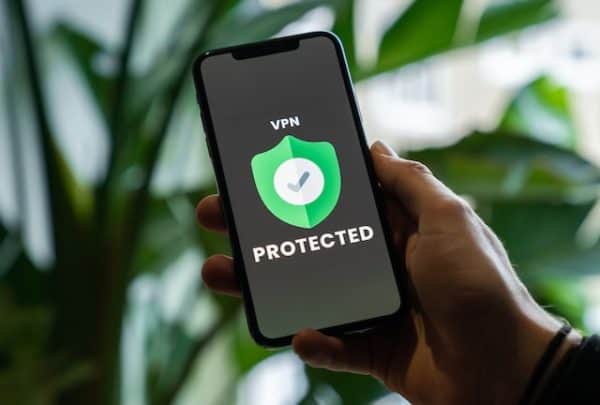
Whether you purchase a pack of bubble gum online or browse through local rental listings, you generate data that gives an idea of your behavior and interests. Both large corporations and sinister individuals are willing to pay top dollar to access it, and many websites are more than willing to share it with their partners.
You might have already heard of tracking cookies, browser fingerprinting, and IP-based tracking. However, did you know that even custom website fonts can implement trackers on your system? That happens unless you’re willing to take back control of the data flow.
This article is a beginner-friendly guide on blocking fonts and other ways to improve online privacy.
Why online privacy matters
According to recent statistics, less than half of adults in the US trust multi-billion-dollar corporations like Google and Microsoft with their personal data. The percentage is even lower for social media services like Facebook and TikTok. While all companies and websites portray a positive picture regarding the collection and use of your data, they still need it to generate revenue.
One can figure out just about anything with enough data. If your credit card has multiple payments against a pizza chain, your bank can approach it to buy your data and remove a few perks from your insurance. A shady website can figure out your identity using trackers and make your details available online without your consent. Thus, keeping your data private is the need of the hour.
How web fonts come into play
Trackers can find their way into your system in several forms. One of them that can conveniently beat your firewall is through cached data. It is the term for temporary data that can be quickly accessed beneath the CPU layer but doesn’t occupy any space on your hard drive. That makes them harder to track for an antivirus that would most likely focus on stored files.
Web fonts work the same way. If you’re familiar with Chrome, you may realize that Google uses a set of fonts that can help you read the information on most websites. Those websites may require access to the fonts installed on your system to make their web pages legible. However, that is where things can get a bit tricky.
The server request might transfer some packets to your system, disguising them as regular cached files. Yet, you may need to realize that they can open a backdoor to your rootkit or install a keylogger. It’s why you should be wary of such requests. Google itself admits in its privacy policy that its fonts can help identify the IP address of any user.
Disabling web fonts for specific sites
For those who don’t want to analyze every website, your browser probably has a setting to disable web fonts from websites. For Google Chrome, you can go to the Privacy and Security tab in Settings and disable websites to use fonts on your device. In the case of Mozilla Firefox, you need to go to the Advanced section under the Fonts tab in General Settings. Tick the “Allow pages to use their fonts, instead of your selection above” box, and the browser will block all such requests from any website.
Yet, you should know that doing so might make the text on a few websites illegible. If you trust those sites, you can mark them as exceptions in Settings.
Other ways to improve online privacy
In addition to blocking fonts, there are other ways to increase your online privacy.
Choose a secure browser
Browsers are inherently designed to let almost any online content through to your system. That may leave it vulnerable to a few unwanted trackers or spyware. Thus, it helps to use secure browsers like Mozilla Firefox or Brave to filter out any suspicious packets and block ads/links to suspicious domains.
Remain strict with permissions
Most data breaches occur because the victim is too trusting of apps. So, it is best to remain strict with what permissions you grant to specific apps and domains. For example, an app about stock exchange guides doesn’t require access to your files or your computer’s camera to provide you with all the necessary information.
Disable cookies and other trackers
When running a virus scan, you may choose the ‘Quick Scan’ option that scans the files on a surface level. Still, it can leave out cookies or trackers that let unauthorized people access your data. Therefore, you should always go for a full scan and delete cookies from your browser every week.
Use aliases for online services
If you visit a server for recreational purposes, say a multiplayer video game, there is a potential risk in using your real name. A salty player may use it to track you down and harass you online or leak your private information. Always use an alias, which maintains your online privacy and sounds much more remarkable.

Install a VPN
When using unsecured connections or visiting suspicious links, it helps to use a Virtual Private Network (VPN). It is an app that masks your IP address and encrypts internet traffic. If you enable a VPN for Windows on your home PC, you can perform your activities with much more privacy. It will stop IP-based tracking, and your Internet Service Provider won’t be able to see what you do online.
Additionally, you will protect yourself against neighbors that might connect to your Wi-Fi without your knowledge. Of course, remember to activate a VPN for mobile phones to stay safe on public Wi-Fi.
Summary
You shouldn’t leave the responsibility for your online privacy to the goodwill of big corporations and websites. Disabling web font requests is a sure-shot way to ensure that you make things difficult for them to collect your data. Although it may be inconvenient for a few web pages, it might be worth it in the long run.
 Gearfuse Technology, Science, Culture & More
Gearfuse Technology, Science, Culture & More


